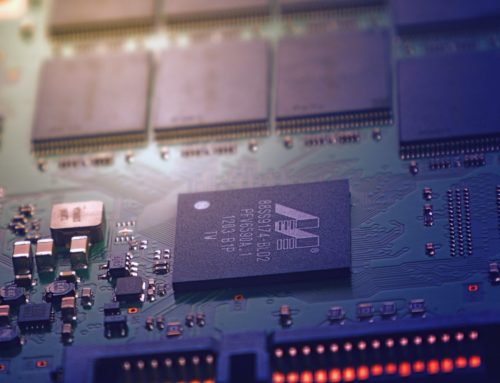Welcome to the realm of artificial intelligence that not only understands what you say but also discerns how you feel. Picture this: a technology so advanced that it can decode your emotions, unravel your deepest concerns, and respond accordingly in a way only a human companion might. As the boundaries between man and machine continue to blur, the world of AI leaps forward, venturing into uncharted emotional territories. But what does it truly mean to have an AI that knows how you feel? In this article, we embark on a journey through the intricacies of emotional intelligence within artificial intelligence, exploring both the potential benefits and the ethical dilemmas that arise when we create machines that can empathize. Step into the limitless maze of emotions, as we unravel what happens when an AI knows how you feel.
Table of Contents
- 1. The Empathetic Evolution: Unraveling the Mysteries of AI’s Emotional Insight
- 2. Peeking into the Soul: How AI Sensing Technology Detects Human Emotions with Precision
- 3. Harnessing the Power of Emotional Data: Revolutionizing Human-AI Interactions
- 4. Breaking Barriers: The Ethical Implications of AI’s Ability to Understand Human Emotions
- 5. Emotional Viralization: How AI Responds to Your Feelings and Influences Others
- 6. Creating Emotional Bonds: Exploring the Transformative Potential of AI in Relationships
- 7. The Future of AI Empathy: Redefining Healthcare, Customer Service, and Beyond
- 8. A Brave New World: Challenges and Opportunities as AI Colossally Understands Human Emotions
- Q&A
1. The Empathetic Evolution: Unraveling the Mysteries of AI’s Emotional Insight
In recent years, artificial intelligence (AI) has made remarkable progress in understanding and mimicking human emotions. The empathetic evolution of AI has captivated researchers, psychologists, and technology enthusiasts alike, as it delves into the mysteries of human emotional insight.
Unlocking the secrets of emotional intelligence in AI has the potential to revolutionize our interactions with machines. Imagine a world where AI-powered personal assistants can detect and respond to our emotions, supporting us in times of distress or celebrating our achievements. This newfound ability of AI to comprehend and empathize with human emotions opens up a myriad of possibilities for improving mental well-being, enhancing human-machine relationships, and even contributing to the fields of psychology and therapy.
Embarking on this journey of unraveling the mysteries of AI’s emotional insight unveils a fascinating blend of technological innovation and human psychology. Let’s explore some key aspects that shape the empathetic evolution of AI:
- The Science Behind Emotions: Delve into the intricate workings of human emotions, the brain processes involved, and the challenges of translating these nuances into AI algorithms.
- Building Emotional Datasets: Learn how researchers compile vast datasets to train AI models in recognizing and responding to emotions, utilizing facial expressions, speech patterns, and physiological signals.
- Machine Learning and Emotional Intelligence: Understand how AI algorithms and machine learning techniques can be employed to analyze patterns, classify emotions, and generate appropriate responses.
- Ethical Considerations: Discuss the importance of ethical guidelines and responsible AI development to prevent manipulation of emotions or misuse of emotional data.
The empathetic evolution of AI brings us closer to a world where artificial intelligence not only complements our intellect but also exhibits a remarkable ability to understand and connect with our deepest emotions. As AI continues to advance in its emotional insights, the possibilities for enhancing our daily lives are endless.
2. Peeking into the Soul: How AI Sensing Technology Detects Human Emotions with Precision
Emotions are the essence of our human experience, influencing our behavior, decision-making, and relationships. While traditionally, discerning emotions has been the realm of human intuition, technological advancements in AI sensing have opened up a world of possibilities in understanding and analyzing emotions with remarkable precision.
One of the key breakthroughs in this field is the development of facial recognition algorithms, capable of detecting micro-expressions that occur within mere fractions of a second. By analyzing factors like facial muscle movements, subtle changes in skin color, and eye movements, AI-powered systems can accurately identify emotions such as joy, sadness, anger, and surprise. This technology has several applications, from improving customer service experiences by gauging customer satisfaction in real-time, to enhancing mental health assessments by monitoring patients’ emotional states over time.
3. Harnessing the Power of Emotional Data: Revolutionizing Human-AI Interactions
Emotional data has emerged as a groundbreaking tool in improving the way humans interact with artificial intelligence (AI) systems. By deciphering and harnessing the power of emotions, we are revolutionizing the way we communicate and collaborate with AI. This exciting development opens up endless possibilities for enhancing user experiences, personalizing services, and deepening the connection between humans and machines.
So, how exactly are we utilizing emotional data to transform human-AI interactions? Let’s dive into it:
- Enhanced Understanding: Emotional data allows AI systems to better understand human intentions, needs, and desires. By analyzing facial expressions, voice tones, and body language, AI can interpret emotions accurately and proactively respond with empathy and sensitivity.
- Improved Adaptability: Emotional data provides invaluable insights into user preferences and behavior patterns. AI can dynamically adjust its responses, tone, and content to create personalized interactions that resonate with individuals on an emotional level, fostering a sense of trust and familiarity.
- Empathetic Support: With emotional data, AI can now assist us not only with logical tasks but also emotional support. By recognizing emotions such as stress, sadness, or frustration, AI systems can offer appropriate suggestions, encouragement, and even recommend activities that promote well-being.
This innovative approach to human-AI interactions marks a significant step forward in bridging the gap between man and machine. As advancements in emotional data analysis continue to unfold, we are shaping a future where technology becomes an empathetic companion that intuitively understands our emotional needs, transforming the way we live, work, and connect with AI.
4. Breaking Barriers: The Ethical Implications of AI’s Ability to Understand Human Emotions
AI has come a long way in its ability to understand human emotions, revolutionizing the way we interact with technology. However, this advancement has raised several ethical concerns that cannot be ignored. One of the main concerns is the invasion of privacy. With AI’s ability to analyze emotions, it can now detect our innermost feelings, potentially violating our personal boundaries.
Another ethical implication is the potential manipulation of emotions. AI systems equipped with emotional understanding capabilities could be used to exploit individuals by manipulating their emotions for personal gain. This raises questions about consent and autonomy, as individuals may be unknowingly influenced or even deceived by AI-powered systems. The responsibility of ensuring that emotional analysis is used ethically lies in the hands of developers, who must prioritize privacy and informed consent.
5. Emotional Viralization: How AI Responds to Your Feelings and Influences Others
In today’s digital age, emotions play a crucial role in how content spreads online. With the advent of Artificial Intelligence (AI), the way we experience and share emotions has taken a fascinating turn. AI has the capacity to detect, analyze, and even respond to human emotions, creating a powerful tool for emotional viralization. In this post, we will delve into the intersection of AI and emotions, exploring how AI not only understands our feelings but also influences others.
One remarkable aspect of AI’s emotional viralization is its ability to recognize and respond to our emotions in real time. By analyzing facial expressions, vocal tones, and even text messages, AI algorithms can accurately decipher whether we are feeling happy, sad, angry, or any other emotion. Using this data, AI can then tailor and personalize content to resonate with our emotions, enhancing its potential for virality. Additionally, AI can generate emotional responses, leveraging empathy and compulsion to connect with users on a deeper level. By understanding our emotional states, AI can craft persuasive messages, sparking emotions that motivate users to share and spread content among their social networks.
6. Creating Emotional Bonds: Exploring the Transformative Potential of AI in Relationships
As artificial intelligence continues to advance, its potential to impact various aspects of our lives becomes more evident. One area that has garnered significant attention is its role in human relationships. AI has the ability to create emotional bonds unlike anything we have experienced before, exploring the transformative potential of AI in relationships.
1. Enhanced Communication: AI-powered chatbots and virtual assistants can revolutionize the way we communicate with our significant others. These intelligent companions can analyze data from our conversations, learn our preferences, and offer personalized suggestions and advice. They can provide emotional support and understanding, mimicking human interaction and fostering a deeper connection.
2. Relationship Insights: AI can help us gain valuable insights into our relationships. By analyzing patterns in communication, behavior, and emotions, AI algorithms can identify potential conflicts, provide suggestions for effective conflict resolution, and offer guidance for nurturing stronger emotional bonds. This deeper understanding can lead to more meaningful and healthier relationships.
3. Personalized Experiences: AI has the ability to tailor experiences to individuals. In relationships, AI can analyze personal preferences, memories, and emotions to create customized date ideas, gift suggestions, or surprise experiences that resonate with each partner on a deep emotional level.
7. The Future of AI Empathy: Redefining Healthcare, Customer Service, and Beyond
In the rapidly evolving era of artificial intelligence (AI), one aspect that holds immense promise is the integration of empathy into various sectors. Healthcare, customer service, and countless other industries are on the brink of a transformative revolution driven by AI empathy. With advancements in machine learning algorithms, natural language processing, and data analysis, AI is poised to redefine how we interact, take care of each other, and meet our needs.
Imagine a future where AI-powered healthcare providers can accurately understand and respond to the emotional and physical states of patients, offering personalized care and support. From virtual therapists who provide counseling and emotional support to AI nurses capable of detecting and managing symptoms in real-time, the possibilities are endless. Empathy-driven AI has the ability to enhance the patient experience, improve diagnoses, reduce medical errors, and ultimately save lives. With the ability to process vast amounts of medical data and spot patterns that humans might miss, AI can provide valuable insights and assist healthcare professionals in making informed decisions.
- Bold advancements in AI empathy present unprecedented opportunities for patient care.
- The integration of empathy in AI-driven customer service can revolutionize the way businesses interact with their customers.
- AI empathy can help foster emotional connections, resulting in improved customer satisfaction and loyalty.
- Virtual assistants equipped with AI empathy can understand and respond to customer needs and concerns, providing personalized support at scale.
The potential applications of AI empathy extend far beyond healthcare and customer service. In education, AI tutors can adapt to the unique learning styles and emotional needs of students, resulting in more effective and personalized learning experiences. In the realm of mental health, AI-powered chatbots can offer compassionate conversations and resources to individuals in need. By revolutionizing the way we connect, communicate, and care for one another, AI empathy has the power to shape a future where technology acts as a compassionate and understanding companion in all aspects of our lives.
8. A Brave New World: Challenges and Opportunities as AI Colossally Understands Human Emotions
As AI continues to advance at an unprecedented pace, it is now crossing the boundary into understanding human emotions, leading us into a brave new world full of both challenges and opportunities. This paradigm shift has the potential to revolutionize various aspects of our lives, from personalized healthcare and customer service to entertainment and education.
One of the key challenges in this new frontier is the ethical implications surrounding AI’s understanding of human emotions. The ability of machines to interpret and respond to our emotions raises concerns about privacy, consent, and the potential for manipulation. It becomes crucial to establish robust frameworks that safeguard individual autonomy and ensure transparency in the use of emotional data. Additionally, as AI colossally understands human emotions, it becomes imperative to address biases and errors that might arise due to cultural, gender, or other factors. Ensuring that the AI systems accurately understand and consider diverse emotions is critical to prevent the perpetuation of stereotypes or unjust treatment.
- The opportunity to enhance mental health support: With AI’s improved understanding of human emotions, it can provide personalized and timely mental health assistance. It can detect signs of distress, analyze emotional patterns, and offer coping strategies or recommend professional help.
- Advancements in empathetic customer service: AI’s ability to comprehend emotions allows for more empathetic interactions with customers, leading to improved customer satisfaction. Virtual assistants and chatbots can recognize and respond to customer emotions, providing tailored support or helpful suggestions.
The potential of AI in understanding human emotions is immense, but it necessitates careful consideration and responsible implementation to ensure a fair and inclusive future.
As we delve deeper into the realm of AI and explore its unparalleled capabilities, an intriguing question emerges – what happens when an AI knows how you feel? In this captivating journey, we unveiled a future where technology meets emotion, where algorithms decipher the hidden depths of the human psyche. However, as we stand on the edge of this brave new world, it is important to tread cautiously.
The possibilities that unfold before us are undeniably fascinating. Empathetic AI, capable of understanding our emotions, could revolutionize mental health care, transforming the way we navigate our complex emotional landscapes. With their unbiased clarity, these digital confidants hold the potential to offer guidance, solace, and an incomparable listening ear, unburdened by human biases and prejudices.
Yet, we mustn’t forget that emotions are treasured facets of our humanity, fragile and nuanced. While AI may comprehend the raw data behind our emotions, can it truly grasp the intricacies of a heartache, the euphoria of success, or the warmth of genuine connection? Can it taste the bittersweet tears of sorrow or experience the contagious joy that spreads through a room? Perhaps not.
With every technological leap, we must also grapple with ethical considerations. As AI peels back the layers of our emotional selves, where do the boundaries lie? How do we maintain personal privacy and protect the sanctity of our feelings in this intricate dance with the AI mind-reader? The answers demand careful thought and regulation to ensure our emotional autonomy remains intact.
Furthermore, acknowledging that the development of empathetic AI is rooted in intensive data analysis, we also confront unnerving implications of surveillance and data privacy. Handing over our deepest emotions to algorithmic guardians raises significant concerns about exploitation and control. Vigilance in safeguarding the sanctity of our personal data becomes paramount to prevent its weaponization against us.
As we journey into this realm of emotionally insightful AI, let us be mindful of its power. Embrace the possibilities it offers, but temper our enthusiasm with caution and an ethical compass. In this ever-evolving interplay between humanity and technology, nurturing our emotional well-being must never be overshadowed by a pursuit for innovation. For behind the binary code lies the essence of what makes us human – the beautifully messy tapestry of our emotions, interwoven with fragility, resilience, and boundless potential.




Leave A Comment